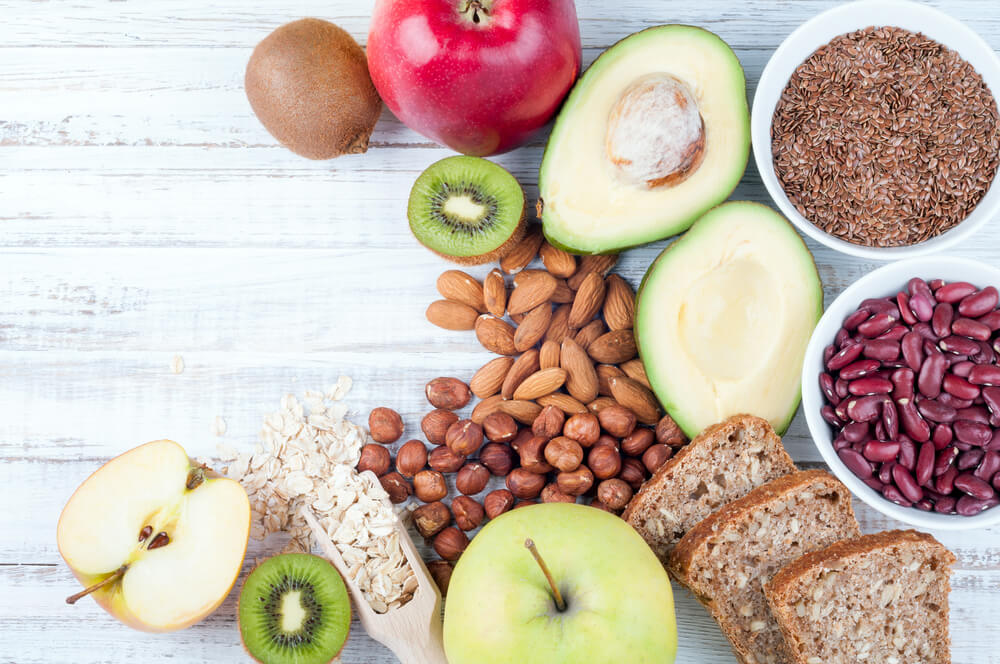Thyroid Diet: Best and Worst Foods for a Healthy Thyroid
Nearly 4.6 percent of people in the United States, aged 12 and older, suffer from Hypothyroidism. That means that every 5 out of 10 people deal with hypothyroidism everyday. Hypothyroidism is when the thyroid gland, located in the neck, doesn’t produce enough hormones to meet the needs of the body. These hormones not only control the body’s use of energy but they also play a part in the other organs in the body. When there is a lack of the thyroid hormones, many of the bodily functions slow down. Luckily there are medications out there can help provide the body with the hormones needed but they almost always have to be taken in the morning before eating, which can be frustrating.
On the other hand, nearly 1.2 percent of people in the United States struggle with Hyperthyroidism, which is about 1 out of every 100 people. This is when the body produces too much thyroid hormone affecting especially the way the heart beats. If this type of thyroid problem is left un-treated it can cause serious health problems.
Today we’re going to talk about a thyroid diet, focusing on the best foods for thyroid problems and the foods to avoid with hyperthyroidism. Continue reading to learn about our tips for the best thyroid diet.
Thyroid Diet Tips
Before getting into too much detail about the best and worst foods for a healthy thyroid, it’s important to point out the presence of Hashimoto’s disease in many people who struggle with Hypothyroidism. Hashimoto’s is an autoimmune disorder that often causes Hypothyroidism due to the fact that this disorder attacks the thyroid. There are some tips for what not to eat specifically if you have Hypothyroidism and Hashimoto’s. The thyroid diet recommendations for people who have both Hashimoto’s and Hypothyroidism, as well as the foods to avoid with Hyperthyroidism, are to stay away from foods that have large amounts of iodine such as kelp, dulse or other types of seaweed as well as regularly taking iodine supplements.
Contrary of the statement above, the best foods for thyroid problems are those who contain large amounts of iodine (unless you have Hashimoto’s). Iodine is needed in order to have normal thyroid function. It’s also important to limit large quantities of soy because it can interfere with thyroid hormone medication absorption.
According to an article published by the Harvard Medical School, the best food for thyroid problems are as follows:
Nutritious food – this can include a wide variety of fruits, vegetables, nuts, and whole grain foods to ensure overall health. These nutritious foods should come from lean sources such as fish or beans as well as good oils. Try to include more fiber in your diet as well.
Control What You Eat– Try to eat carbohydrates that are found in whole-grain foods and vegetables. Eat less unhealthy fats such as potato chips, candy, crackers and “junk food” that is high in calories.
At the end of the day, eating healthy hardly has negative implications on a health condition. Do research, speak to your doctor or a medical professional about any diet doubts or questions. Maintaining a healthy diet and lifestyle is good for your health and quality of life.
Foods to avoid with Hyperthyroidism
If you fall into that 1.2 percent of Americans who suffer from Hyperthyroidism you may be wondering about the foods to avoid with Hyperthyroidism. According to the American Thyroid Association specific foods to avoid are as follows:
- Iodized salt
- Vitamins or supplements that contain iodine
- Milk or other dairy products
- Seafood in general
- Herbal supplements
- Foods that contain carrageen
- Commercially prepared bakery products
- FD&C red dye #3
- Egg yolks, whole eggs, foods with whole eggs
- Milk Chocolate
- Blackstrap Molasses, specifically
- Soy products
The best thyroid diet foods for Hyperthyroidism according to the American Thyroid Association are as follows:
- Non iodized salt
- Egg whites
- Homemade bread made with non-iodized salt and oil
- Fresh fruits and veggies
- Grain, cereal, pasta
- Canned fruit
- Natural unsalted nuts
- Sodas, beer, wine
- Coffee or tea
- Popcorn in vegetable oil
- Black pepper, fresh/dried herbs
- Sugar, jam, jelly, honey, maple syrup
- Matzoh crackers
Final Note
Make sure you know why type of thyroid problems you have before you start focusing on a specific type of thyroid diet. It’s also a good idea to speak with your doctor about the possibility of having Hashimoto’s disease if you have Hypothyroidism. There are many mixed opinions with research that related to thyroid diet. Do your research and speak to professionals about what options are best for you.
Sources:
https://www.thyroid.org/low-iodine-diet/
https://www.health.harvard.edu/staying-healthy/healthy-eating-for-a-healty-thyroid
https://www.niddk.nih.gov/health-information/endocrine-diseases/hyperthyroidism
https://www.niddk.nih.gov/health-information/endocrine-diseases/hashimotos-disease
https://www.niddk.nih.gov/health-information/endocrine-diseases/hypothyroidism
